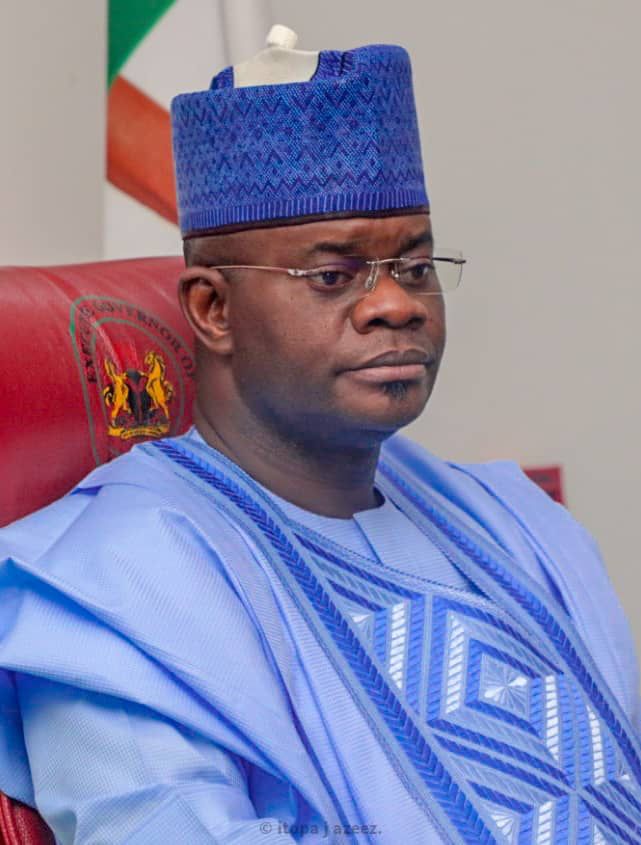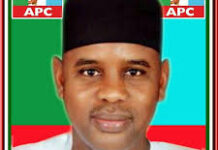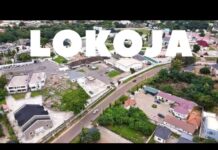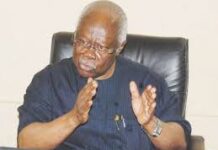Yahaya Bello, EFCC and World Bank: How a Prophet is not Honoured at Home By Nafisat Bello
“A prophet is not without honor except in his hometown and in his own household. And it seems he did not do many mighty works there, because of their unbelief”
The above immortal and celestial words were reportedly spoken by Jesus Christ to the people of Nazareth, the town where he grew up. The time-tested prophecy was made in the context of their refusal to believe in his teaching because they considered him one of themselves and therefore without authority to preach to them.
The Holy Bible via this quote exposed us to the story of how a Prophet is not often honoured at home but respected abroad. It must be the human tendency of not valuing what they have and who they see on a regular basis.
More often than not, this same Prophet who is dishonoured and disrespected among his kiths and kin commands a lot of attention and followership from folks who don’t have daily access to him, who are far away from him and who only view him from afar.
This agelong issue of a Prophet not commanding respect at home must be the nearest phenomenon that can explain the obsession of the Economic and Financial Crimes Commission (EFCC) with Governor Yahaya Bello of Kogi state in the midst of awards, commendations and accolades for accountability and transparency by renowned international organisations led by the World Bank.
Even after the Commission failed to nail the state government over the spurious allegation of illegally diverting the sum of N20 billion naira bailout funds, it looks like the EFCC has started another macabre dance whose intent obviously is to embarrass the institution and molest it’s officials.
The Commission in another media trial went to town recently with a statement about a particular money laundering case in which some arrests have been made and in the course of which they will have to torchlight the Kogi state government. That was how they went to town with the N20 billion naira case without proper investigation until Sterling Bank threw the Commission under the bus with a couple of depositions to court that said that there was no such account or a directive from the state government to divert bailout funds.
“The media trial by the EFCC is a calculated and orchestrated plan to embarrass the State Government by going after its Officials and Associates with trumped up charges to satisfy the destructive fangs of their paymasters,” the state Commissioner for Finance, Kingsley Fanwo, said in a recent statement.
The commissioner argued further that the inclination of the EFCC was against the acknowledgment of due process and financial accountability award given to the Kogi State Government by international organisations. He particularly cited the recent honour accorded the Kogi State Government by the World Bank funded SFTAS project in which Kogi was lifted above peers in financial accountability.
The statement read in part: “Our attention has been drawn to a press statement on the website of the Economic and Financial Crimes Commission to the effect that they arraigned some persons who they alleged were linked with laundering monies belonging to the Government of Kogi State.
“In as much as we would not want to delve into the depth of the matter which is now sub judice, it is pertinent to draw the attention of the general public to the fact that the desperation of the EFCC to crucify Kogi State at all costs may have landed them in another trouble. Unlike the EFCC that has been known for serial contempt of court under the current leadership; we are committed to allow the law to take its due course on the matter and our innocence, again, proven beyond reasonable doubt.
“It would be recalled that this same EFCC once accused the Kogi State Government of stashing 20 billion naira bailout funds in a fixed deposit account in Sterling Bank. When the legal fireworks were about to ruffle their biased feathers, they quickly backed out and claimed the money had been returned to the Central Bank of Nigeria. Till date, they have not shown Nigerians any proof of the return even when Sterling Bank Plc has under oath denied the return of any monies belonging to the Kogi State Government. It is trite that what does not exist cannot be taken or returned.
“The media trial by the EFCC is a calculated and orchestrated plan to embarrass the State Government by going after its officials and associates with trumped up charges to satisfy the destructive fangs of their paymasters.
Read Also:
“Let it be on record that no money belonging to the Kogi State Government was laundered. SFTAS is a World Bank accountability project to ensure the Government stays accountable to the people. For many years, Kogi has won awards as one of the most transparent State Governments in Nigeria. A responsible anti-graft agency would have made Kogi an example of transparency and excellence. However, with its endless wild goose chase, Nigerians would even wonder if EFCC’s obviously biased corruption binoculars are only designed for Kogi State.
“It is not unexpected that the EFCC would feel disappointed that the monies they claimed had been stolen from the coffers of the state have been used to build Nigeria’s best hospitals, good roads, best schools that are about to be commissioned. We cannot help their descent into political pawn. We will continue to make the resources of our state work for our people.
“Nigerians know that the recent Gestapo-like operation against the State was occasioned by EFCC’s failure to sell the “fixed” Bailout funds debacle to the people. They became desperate to save their face from the disgrace bestowed on them by their ‘Destroy Kogi’ Agenda.”
While the Commissioner’s take on the matter may be dismissed as an expected defense of his paymaster, neutral and more credible Nigerians and civil society groups have also agreed with him and taken the side of the Kogi state government. They have all condemned EFCC’s lawlessness and resort to extrajudicial measures to settle scores.
Leading the pack is a former President of the Nigerian Bar Association (NBA), Dr. Olisa Agbakoba (SAN), who tackled the EFCC over what he described as an ‘unwarranted media trial of the Kogi State government’ regarding the case against Governor Bello’s nephew and the N20 billion bail-out controversy.
Agbakoba in a recent press conference in Lagos noted that the anti-corruption agency is turning itself into a one-man Robin Hood riot gang, which must not be allowed.
According to him, how a state spends its money should not be the business of the EFCC, but that of the Independent Corrupt Practices and Other Related Offences Commission (ICPC).
“It is not the duty of the EFCC to be chasing the Kogi state government and threatening to storm the State House to seize documents or harass the Accountant-General of the state.
“If I were the lawyer to the Kogi State government, what I would do is to go to court and tell the court that as a result of the Supreme Court judgment, the EFCC does not have the power to demand that we should provide documents or give them our accounting books.
“If we have lost money, we are the ones to complain and if we are not complaining or we are complicit in any fraud, then the appropriate agency to handle it is the ICPC or the state House of Assembly,” Agbakoba added.
A group of anti-corruption activists has also risen in support of the state government in what they described as the politicisation of the EFCC.
According to them, the Commission’s recent actions, especially against the Kogi State Government, portray it as a “compromised political tool.”
The civil society groups which include leaders of the Centre for Anti-corruption and Open Leadership, Centre for Public Accountability, Coalition Against Corruption and Bad Governance, Africa Labour Research Centre, and Secureworld and Liberty Initiative for Peace, called on President Muhammadu Buhari to rein-in the EFCC and save whatever is left of the administration’s record in preserving the rule of law and strengthening institutions.
The interesting part of it is that while the EFCC dances naked in the market, in search of what is not missing, the World Bank recently commended Governor Bello for the refund of a $4.63 million surpluses under the Nigeria Erosion and Watershed Management Project (NEWMAP).
This was contained in a letter of appreciation entitled ‘Refund of Surplus Project Funds to the World Bank under the Nigeria Erosion and Watershed Management Project (NEWMAP) (IDA Credits: 62770, 62780)’, signed by its Regional Director, Shubham Chaudhuri, the Bretton Woods institution asserted that Bello’s action made it possible for the organisation to extend it’s projects to other states facing deficit funds and closing date of its projects.
Kogi state has also won the World Bank’s Awards of Excellence in three categories which include the fiscal transparency and accountability, Debt sustainability and Domestic revenue mobilisation.
From all indications therefore, the EFCC’s obsessive urge to nail the state government to the cross on transparency issues without any thorough or diligent investigation flies in the face of reality. It remains to be seen how far the anti-graft agency can go in this fight to suppress the truth and impose it’s antonym.
Nafisat Bello is with Politics Digest Abuja

















